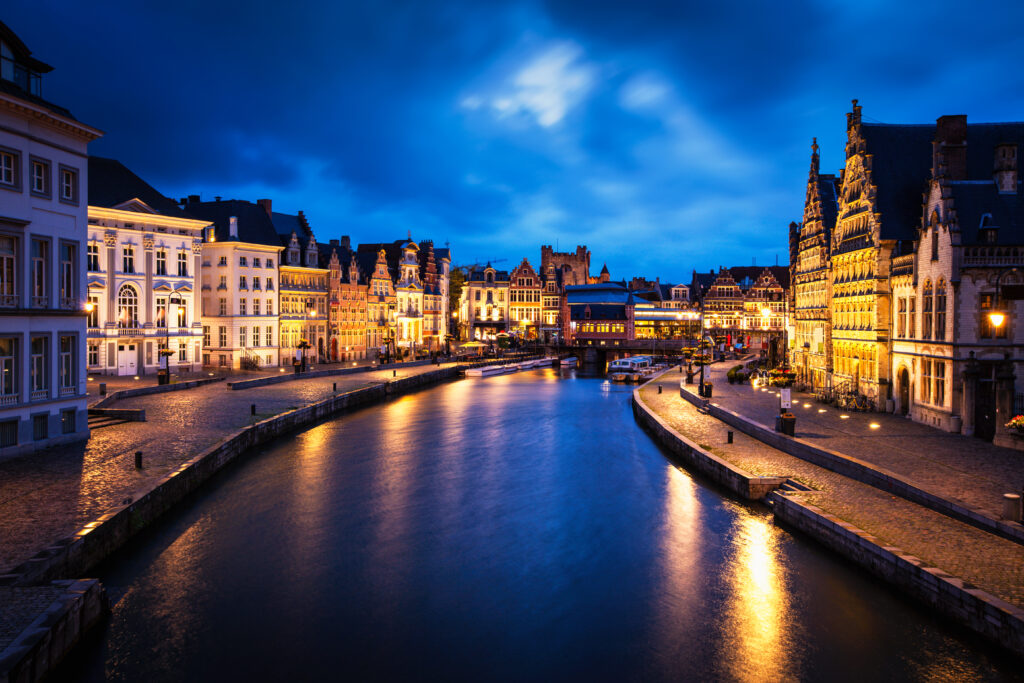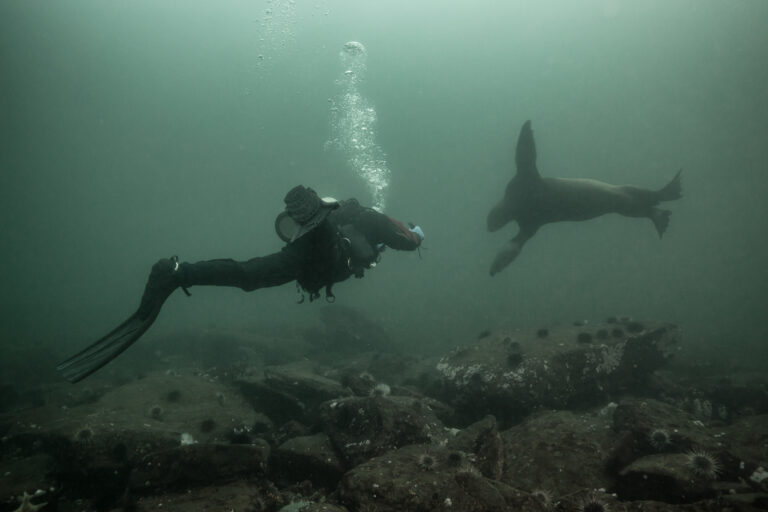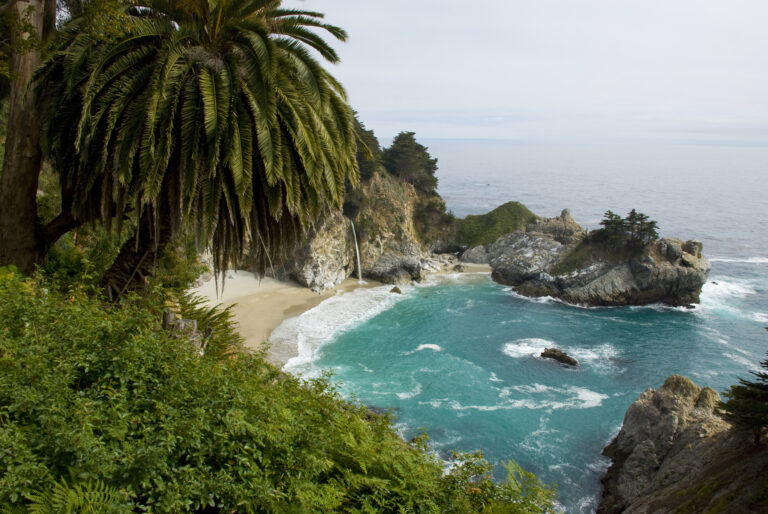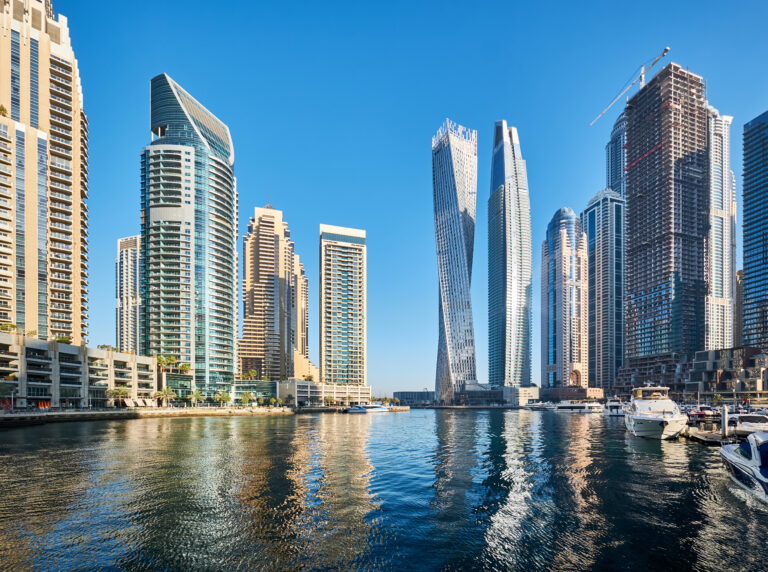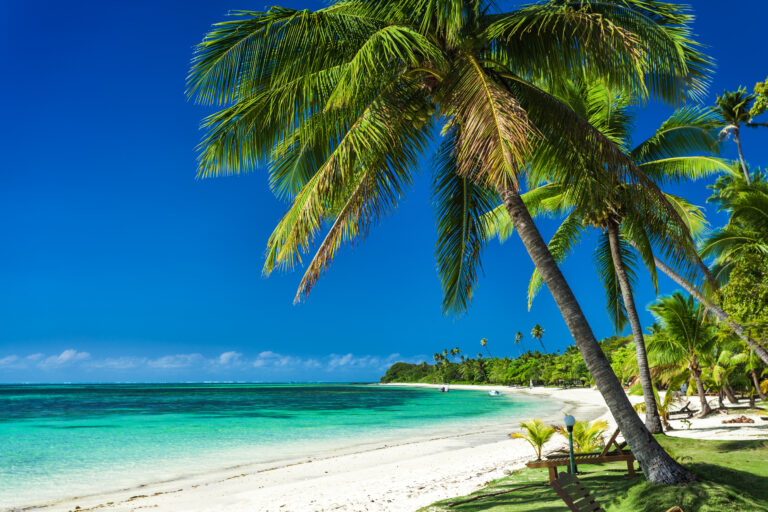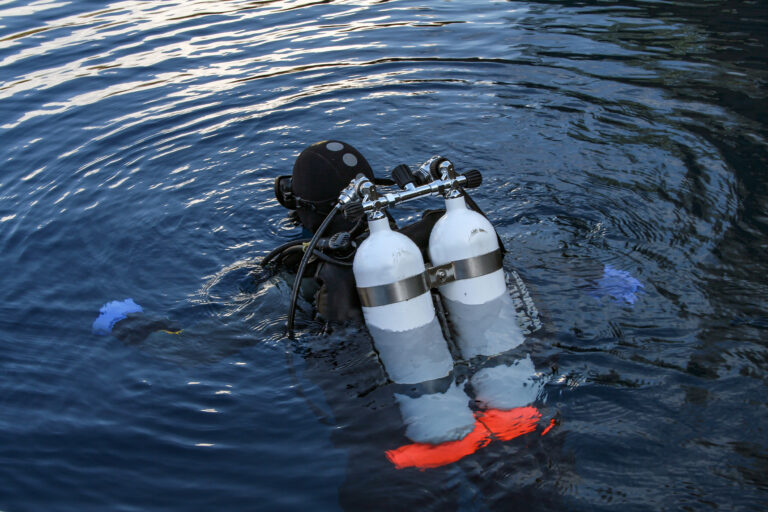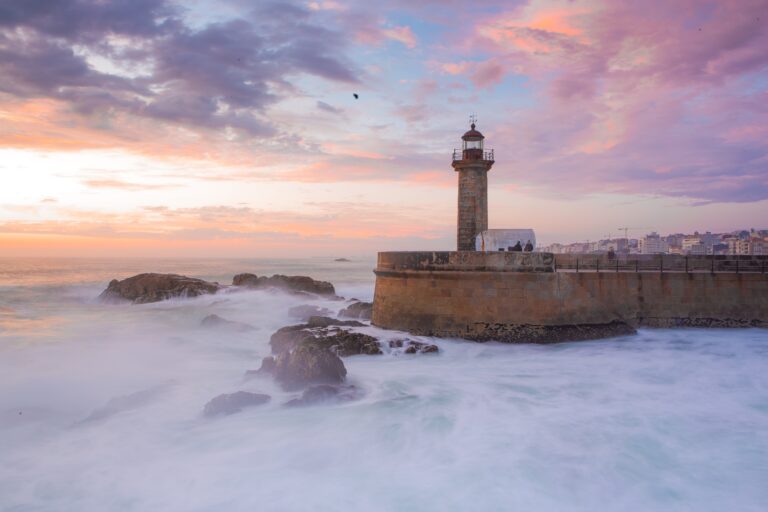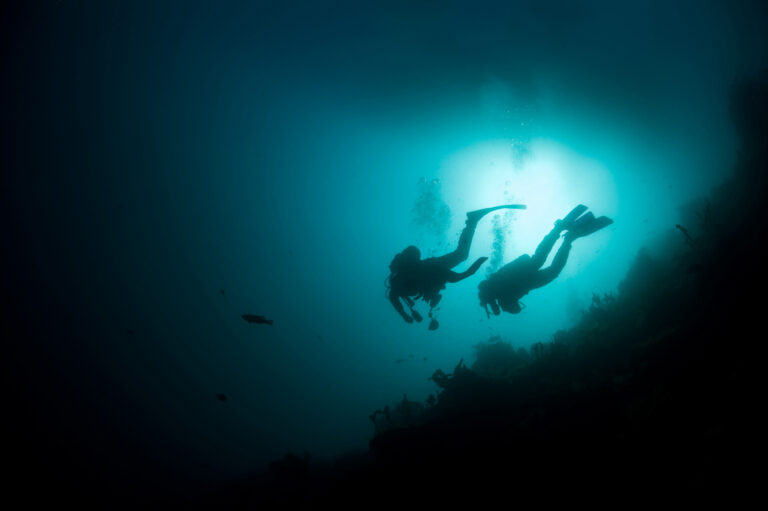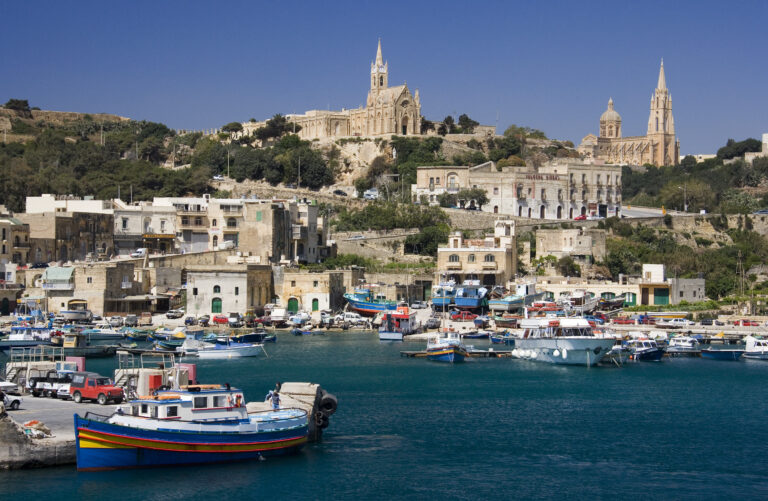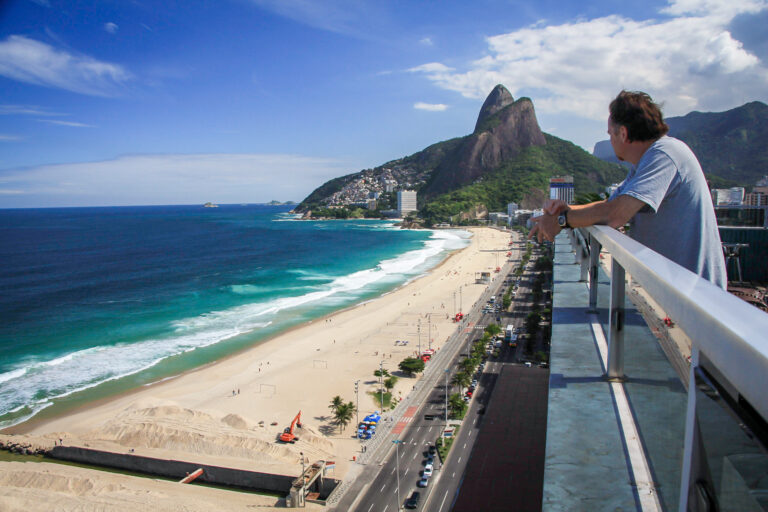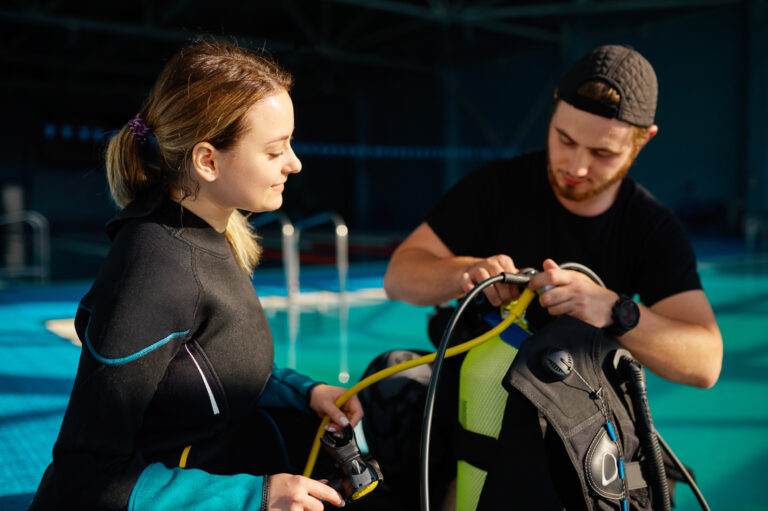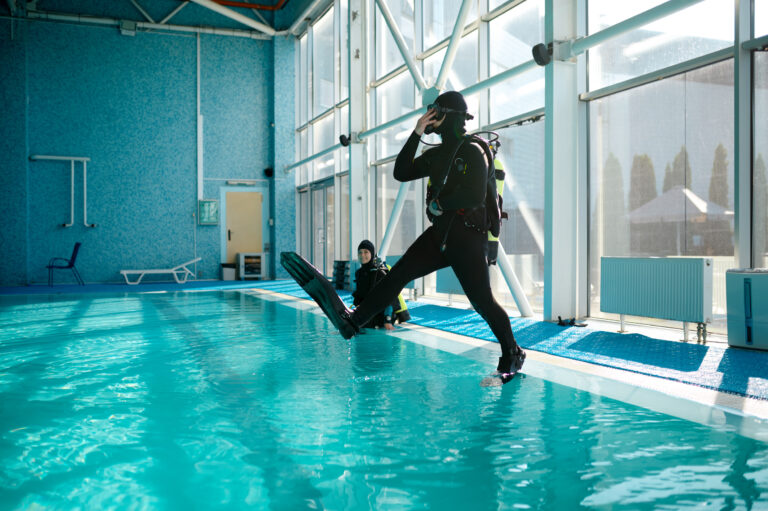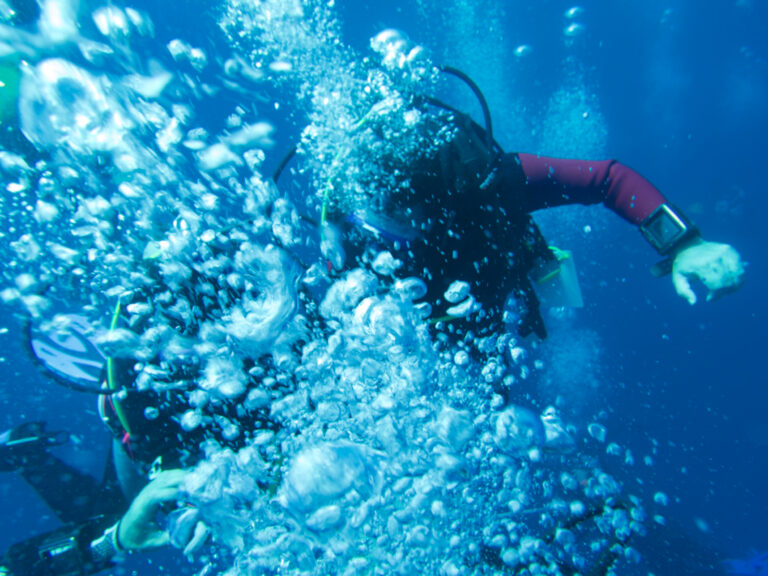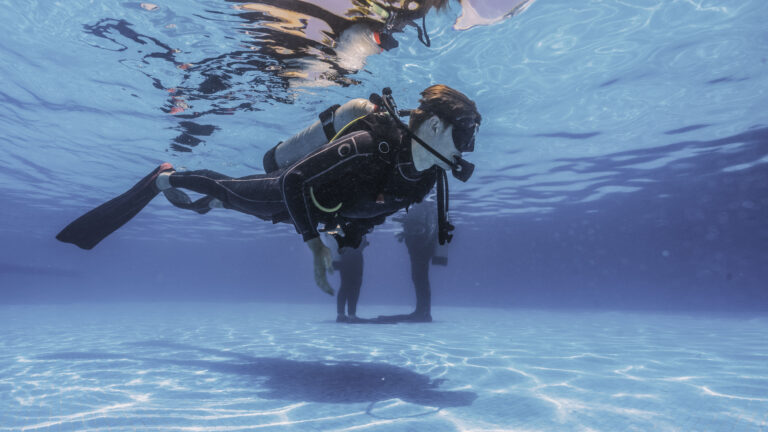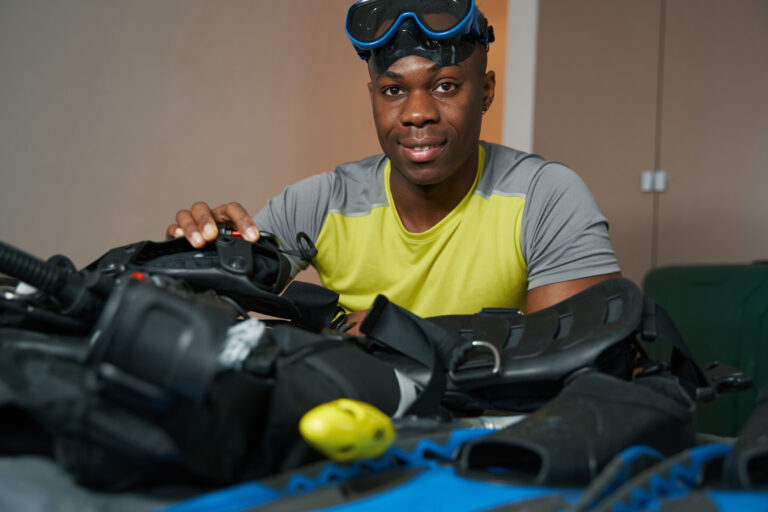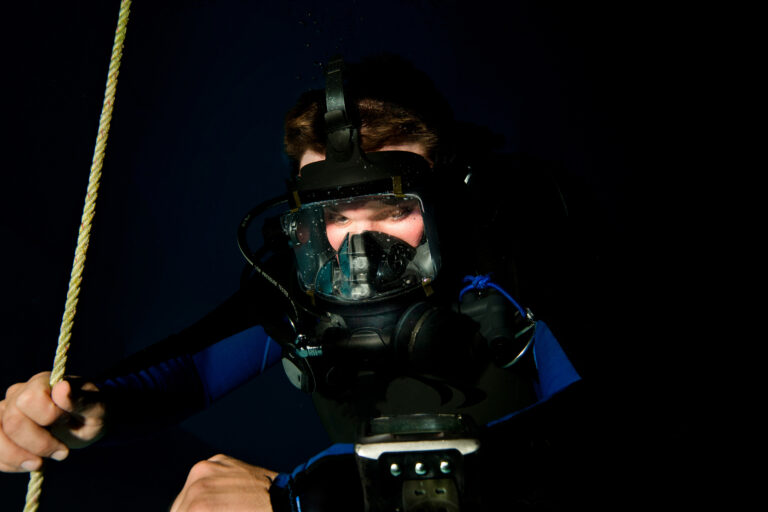SCUBA DIVERS’ TRAVEL GUIDE TO Belgium
Belgium is a small European country that has some surprising underwater treasures to explore. Whether you are looking for natural lakes, artificial quarries, or historical wrecks, diving in Belgium will offer you a unique and diverse experience.
Diving in Belgium is mainly done in natural, flooded quarries that have been transformed into scuba diving sites, offering divers a chance to see the remnants of human activity and the flourishing aquatic life that has taken over. Imagine swimming through a giant marble hall with pillars and walls, surrounded by sturgeon, carps, and trout. Or diving into an old coal mine with tunnels, machinery, and vehicles, where pikes, perches, and crayfish await you.
If you are feeling adventurous, you can also venture into the North Sea and discover some of the many wrecks that lie on the seabed. From WWII planes and ships to cargo vessels and fishing boats, there is a wreck for every taste and skill level. The North Sea diving is challenging but rewarding, as you will witness the history and mystery of these sunken relics.
Belgium is a scuba diving destination that will surprise you with its variety and charm. Don’t miss the opportunity to dive into this hidden gem of Europe.
LOCATION AND GEOGRAPHY
Belgium, a small yet diverse European country, may not be the first destination that springs to mind when considering scuba diving, but it offers a unique underwater experience for those willing to explore its aquatic offerings. Geographically, Belgium is nestled between France, Germany, Luxembourg, and the Netherlands, with a short northwest coastline along the North Sea. This coastline, particularly around the town of Nieuwpoort, provides access to a surprising array of dive sites, including shipwrecks and artificial reefs that have become marine sanctuaries. Inland, Belgium’s numerous freshwater sites, such as the famous Ekeren and La Gombe quarries, offer clear waters and an array of freshwater marine life, along with intriguing submerged features like sunken vehicles and platforms for training. The country’s relatively flat topography means that most dive sites are easily accessible, making Belgium an unexpected but rewarding destination for divers of all levels seeking to explore beneath the surface of Europe’s historic waters.
VISA AND ENTRY REQUIREMENTS
Before planning your underwater adventure in Belgium, it’s essential to understand the visa and entry requirements. As a member of the Schengen Area, Belgium allows many travelers to enter visa-free for short stays of up to 90 days within a 180-day period, provided they are citizens of other Schengen countries or nations with visa-exemption agreements. Travelers from countries that do not have a visa waiver agreement with the Schengen states will need to apply for a Schengen Visa. This visa permits entry into Belgium for tourism purposes, which includes scuba diving. Ensure your passport is valid for at least three months beyond your planned departure date from the Schengen area. Additionally, you may be asked to show proof of sufficient funds, a return or onward ticket, and details of your accommodation. Always check the latest visa requirements with the Belgian embassy or consulate in your home country well in advance of your trip, as regulations can change.
GETTING TO Belgium
Belgium may not be the first country that springs to mind when considering scuba diving destinations, but this European nation offers a unique underwater experience for those willing to explore its aquatic offerings. Getting to Belgium is straightforward, thanks to its central location and well-connected transport infrastructure. The country is served by several international airports, with Brussels Airport being the largest and most accessible for international travelers. High-speed trains such as Eurostar and Thalys connect Belgium with neighboring countries like France, the Netherlands, Germany, and the UK, making it an easy addition to a European travel itinerary. For those driving, an extensive network of well-maintained highways links Belgium to the rest of Europe. Once in Belgium, divers can venture to the many freshwater quarries and lakes, or even explore the North Sea, where underwater visibility can be surprisingly clear, revealing hidden wrecks and vibrant marine life.
BEST TIME TO DIVE
Belgium might not be the first destination that comes to mind when thinking of scuba diving, but it offers a unique underwater experience for those willing to dive into its waters. The best time to scuba dive in Belgium is during the summer months, from June to August, when the water temperatures are more comfortable, ranging from 15°C to 20°C (59°F to 68°F). Visibility is also at its peak during this period, making it an ideal time to explore the numerous wrecks and artificial reefs, such as the Steenbank wrecks in the North Sea. However, divers should be prepared for the possibility of variable weather conditions and should always check local dive reports before planning their dives. Outside of summer, the waters can be quite cold, and while winter diving is possible for those with appropriate dry suits and experience, it is generally reserved for the most adventurous divers.
ACCOMMODATION OPTIONS
Belgium may not be the first destination that springs to mind when considering a scuba diving holiday, but this European country offers a unique underwater experience, particularly with its numerous inland dive sites and the Nemo 33, one of the deepest indoor swimming pools in the world. Accommodation options for divers in Belgium range from comfortable bed and breakfasts to boutique hotels, particularly in towns close to popular dive spots like Mons, where the former limestone quarries of Vodelée and La Roche Fontaine have been transformed into intriguing dive sites. In coastal towns like Ostend, divers can find seaside hotels that provide easy access to the North Sea’s underwater offerings, including wreck dives. For a more immersive diving experience, some dive centers around major sites offer package deals that include both lodging and diving excursions. Whether you’re looking for a quaint guesthouse or a full-service hotel, Belgium’s dive-centric accommodations cater to both your topside preferences and your underwater adventures.
DIVE OPERATORS AND DIVE SHOPS
Belgium, while not traditionally renowned for its scuba diving, offers a unique underwater experience that is facilitated by a number of professional dive operators and shops, particularly in the regions close to the North Sea. These establishments cater to divers of all levels, providing equipment rentals, air fills, and a range of certification courses from beginner to advanced technical diving. The Nemo 33 in Brussels, once the world’s deepest swimming pool, is a notable indoor facility where many dive shops organize training and refresher courses in a controlled environment. In addition to inland dive sites, Belgian dive shops often arrange excursions to the North Sea, where divers can explore a surprising array of marine life and historical wrecks hidden beneath the waves. The dive operators are well-versed in the local conditions and regulations, ensuring a safe and enjoyable experience. They also play a pivotal role in the conservation of the underwater environment, often participating in clean-up dives and ecological initiatives. Whether you’re looking to explore freshwater quarries, plunge into the history-laden waters of the sea, or simply hone your skills, the dive operators and shops in Belgium provide the necessary expertise and equipment to make your underwater adventure memorable.
TRANSPORTATION WITHIN Belgium
Belgium may not be the first country that comes to mind for scuba diving, but it offers a unique underwater experience, especially with its numerous inland dive sites and the Nemo 33, one of the deepest indoor swimming pools in the world. When it comes to transportation within Belgium, divers will find it convenient and efficient. The country boasts an extensive public transportation network, including trains, trams, and buses, which are operated by different regional companies: SNCB/NMBS for trains, and STIB/MIVB, De Lijn, and TEC for urban and regional buses and trams in Brussels, Flanders, and Wallonia respectively. For those looking to reach coastal areas or more secluded dive sites, renting a car might be the best option, providing flexibility and the ability to transport gear easily. Major rental agencies are found at airports and in city centers. Belgium’s compact size means that no destination is too far away, making it possible to explore a variety of dive sites even during a short visit.
CURRENCY AND PAYMENT METHODS
In Belgium, the official currency is the Euro (€), which is the common currency used throughout much of the European Union. For scuba diving enthusiasts planning their underwater adventures, it’s important to note that while major credit cards such as Visa, MasterCard, and American Express are widely accepted at dive shops, hotels, and larger establishments, it’s advisable to carry some cash for smaller purchases, such as at local markets or in remote areas where electronic payments may not be as readily accepted. ATMs are readily available in cities and towns for cash withdrawals. However, when visiting more secluded dive sites, it’s prudent to secure cash beforehand. Additionally, some dive operators may offer discounts for cash payments or require deposits in advance, so it’s wise to inquire about payment preferences when booking your dives. Always ensure you have a means of payment that aligns with the local vendors to avoid any inconveniences during your scuba diving trip in Belgium.
LANGUAGE AND COMMUNICATION
While Belgium may not be the first destination that comes to mind for scuba diving, it offers unique underwater experiences, such as exploring sunken vessels and freshwater diving in quarries. When diving in Belgium, communication is key, both above and below the water. The country has three official languages: Dutch, French, and German, with Dutch and French being the most prevalent. In the Flemish region, Dutch is predominantly spoken, while French is the main language in the Walloon region. English is also widely understood, especially within the diving community, making it a feasible option for international divers. Dive briefings may be conducted in multiple languages to accommodate the linguistic diversity. It’s beneficial to learn some basic diving terms in the local language, such as “duiker” for diver in Dutch and “plongeur” in French, as well as emergency phrases and numbers. Underwater, divers universally rely on hand signals for communication, ensuring that regardless of linguistic differences, safety and coordination are maintained during the dive.
LOCAL CULTURE AND ATTRACTIONS
Belgium may not be the first country that springs to mind when considering scuba diving destinations, but this European gem offers a unique underwater experience that is complemented by its rich local culture and attractions. After exploring the freshwater quarries and encountering the submerged curiosities they hold, such as sunken boats and aquatic life, divers can immerse themselves in Belgium’s vibrant cultural tapestry. On land, the country’s history unfolds in its medieval towns, where Gothic architecture stands testament to a bygone era. Cities like Bruges and Ghent boast picturesque canals and cobblestone streets, inviting leisurely strolls and opportunities to indulge in the nation’s famed chocolates and beers. Belgium’s culinary scene is a delight, with local specialties like moules-frites (mussels served with fries) and an array of artisanal cheeses. For those interested in the arts, the country’s museums showcase everything from Flemish masters to modern art. With its festivals, historic battlefields, and the palpable charm of its bustling market squares, Belgium offers a cultural richness that beautifully complements the underwater adventures awaiting beneath its waters.
CULTURAL ETIQUETTE AND TIPS
When planning a scuba diving trip to Belgium, it’s important to be mindful of local customs and cultural etiquette to ensure a respectful and enjoyable experience. Belgians are known for their politeness and modesty, so a friendly demeanor and a bit of humility go a long way. When interacting with dive operators and local communities, it’s customary to greet in the local language (Dutch, French, or German, depending on the region) with a simple “Hallo” (Hello in Dutch), “Bonjour” (Hello in French), or “Guten Tag” (Hello in German). Punctuality is highly valued, so be sure to arrive on time for your dives and appointments. It’s also appreciated when divers show interest in local history and environmental conservation efforts, as Belgium takes pride in its cultural heritage and natural resources. Remember to ask permission before taking photos of people or private property, and always show gratitude with a “Dank u” (Thank you in Dutch), “Merci” (Thank you in French), or “Danke” (Thank you in German) after your diving adventures. By observing these simple guidelines, you’ll foster positive interactions and contribute to a culture of mutual respect both above and below the water.
LOCAL LAWS AND REGULATIONS RELEVANT TO TOURISTS
When planning a scuba diving trip to Belgium, it is essential for tourists to familiarize themselves with local laws and regulations to ensure a safe and lawful experience. Belgium requires all divers to be certified by a recognized diving organization and to carry a diving insurance that covers medical treatment and hyperbaric therapy. Diving within Belgian waters is subject to strict environmental regulations to protect aquatic life; hence, interactions with marine flora and fauna should be non-intrusive and respectful. It is mandatory to use a dive flag to signal your position when diving in open waters. Additionally, some areas may have specific access restrictions or may require permits, particularly in the North Sea, where visibility can be limited and currents strong. Divers should also be aware of the regulations regarding the discovery and salvage of underwater artifacts, as Belgium’s waters are rich in historical wrecks. Removing or disturbing such relics is prohibited without proper authorization from the authorities. Always check with local dive shops or authorities for the most current information on diving regulations and no-go zones before embarking on your underwater adventure in Belgium.
SAFETY TIPS AND EMERGENCY CONTACTS
When diving in Belgium, safety should be your utmost priority, as the country’s dive sites often feature challenging conditions such as limited visibility and strong currents. It is essential to dive within your certification limits and to always have a dive buddy. Ensure that your equipment is well-maintained and that you’re familiar with local dive laws and regulations. Before embarking on any dive, check the weather forecast and avoid diving in adverse conditions. It’s crucial to be aware of the signs and symptoms of decompression sickness and to plan your dives conservatively, respecting all safety stops and ascent rates. In case of an emergency, you should know the location of the nearest hyperbaric chamber, which in Belgium is located at the Military Hospital Queen Astrid in Brussels (contact: +32 2 264 48 48). Additionally, keep emergency contact numbers handy, including the local coast guard and DAN Europe (Divers Alert Network) for diving-related emergencies (contact: +39 06 4211 8685). Always inform someone onshore of your dive plan and expected return time. By following these safety tips and having emergency contacts readily available, you can help ensure a safe and enjoyable diving experience in Belgium.
HEALTH AND TRAVEL INSURANCE
When planning a scuba diving trip to Belgium, it’s crucial to consider health and travel insurance that covers diving-specific incidents. While Belgium may not be the first country that comes to mind for underwater adventures, it offers unique diving experiences such as exploring submerged quarries and wrecks in the Nemo 33, one of the world’s deepest indoor swimming pools. Given the inherent risks associated with scuba diving, divers should ensure their insurance policy includes coverage for hyperbaric treatment, medical evacuation, and repatriation in case of a diving accident. Additionally, divers with pre-existing medical conditions should verify that their policy provides adequate coverage. It’s also wise to carry a European Health Insurance Card (EHIC) for EU residents, or to secure a similar level of health coverage for non-EU divers, to ensure access to local healthcare services. Always review the fine print of your insurance policy and confirm that it meets the specific requirements of your diving plans in Belgium, as well as any additional activities you may engage in during your visit.

